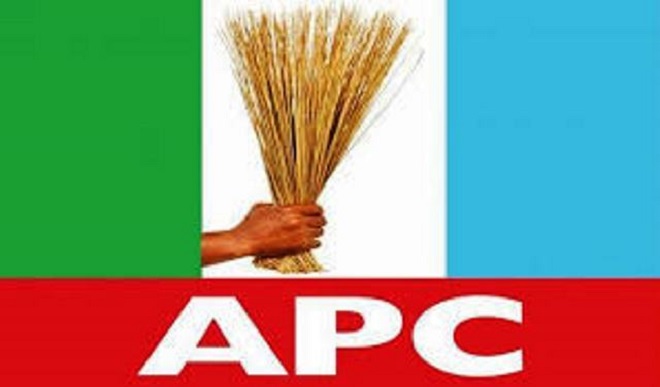Three times in Nigerian political history, its fiercest regional political rivals and largest voting blocs, the north and the southwest, have entered into a political alliance to win federal elections and run a government. The previous two alliances ended in tragedies of very different kinds, and we are now living through the third. Yet, three times the partners have never really governed together. Why so? One reason is history, or rather an accident of it. The other is the incompatible political goals of the partners in the alliance.
The first, in 1964-1965, arose out of the smouldering ashes of the 1963 census and the Western crisis. Negotiated between northern political leaders and Chief Samuel Ladoke Akintola who was the leader, not of the Action Group (AG), the Southwest’s dominant party of the day, but of a faction of it, the alliance, and the government it formed, soon crumbled along with the whole political era within which it was born.
- APC’s zoning agreement should be respected in 2023 – Fashola
- 2023 polls: Our actions will determine APC’s chances – Gov Buni
Thirty years of military tinkering with the formal structures of the Nigerian state did not benefit the second alliance of the great rivals, which was still no less tragic, if less bloody, than the first. Unlike the first alliance which lived long enough to form a government, but not enough to actually govern, the second did not even see the light of day because the 1993 presidential elections, which it won, was quickly annulled by the same military that had helped broker it. The rest, as they don’t always say, is history still present because the clouds of all these hang over the APC even today.
The APC may be the most successful coalition of opposition parties to ever take federal power in Nigerian history, but it is still Buhari’s one-man show. All but few of the more prominent defectors from the Peoples Democratic Party (PDP) who crucially helped APC defeat PDP in 2015 have been driven out or silenced, beginning with the political annihilation of then Senate President Bukola Saraki, and to a lesser extent his counterpart in the House of Representatives, Speaker Yakubu Dogara.
Indeed, for many, Saraki and Dogara were the first men to crack the APC’s Blue Wall by their collusion with the PDP to win their respective offices outside of the party consensus. But both men were in fact APC’s wasted resources than a problem. Each brought to the APC table much more than their collusion with the PDP took from it.
Bukola Saraki, like his father, is the only politician of note in Nigeria who straddles the two dominant political cultures that make up the APC. Politically, he is a northerner; culturally he is a Yoruba man. For Buhari, therefore, Saraki, as Senate President, represented a wedge against Tinubu’s then clear ambition to control all levers of power within the APC, bar the presidency (party leadership, the vice-presidency, the Senate, the House and a sizable chunk of the state leaderships).
But for Tinubu, too, Saraki represented not a wedge, but an alternative political bridge that he could cross into the Buhari camp at precisely moments of quiet tension and growing suspicion of betrayal between the two wings of the party as we have today. Yakubu Dogara, as Speaker of the House, would serve much the same purpose for both camps in different ways.
For Buhari, an open, sustained and consistent embrace of Dogara would help calm frayed religious nerves within the North itself. Likewise, Dogara would help Tinubu climb over one of the major political huddles on his path to the Nigerian presidency, especially a Dogara that is openly seen as an inner member of the Buhari camp. Unfortunately, both party leaders were blinded by too much political sight. Instead of grooming them to help hold the party together from different flanks, they were hounded out.
And for evidence of how much an insurance policy Saraki, and Dogara, represented for Buhari within the APC, look no further than his own version of presidential illness. Should Buhari fall sick again today and goes away to a London hospital for several months as he did in his first term, talk of impeaching him would be the major subject in the media and political agenda, even if without success; something which could hardly even be whispered in 2016-2017.
But the ostracization and eventual forced exit of both Saraki and Dogara from the APC did little to unify the party further, an indication that the two were not the problem to begin with. More worrisome still, there is little evidence that the Buhari and Tinubu camps in the coalition actually govern the country together. The southwest wing of the party appears content to share the spoils of election victory, but not the political, moral and intellectual burden of running a government together with its northern partner. Instead, it is waiting patiently, or perhaps impatiently, for its turn of the presidential baton. And again, why so?
The reason is simple, but not simplistic. The two blocs need federal power for very different things within the Nigerian federal space. The North lacks economic and cultural power, so it seeks political power to protect itself within the Nigerian federation. The South-west, like much of the south in fact, on the other hand, seeks political power to advance and project the economic and cultural power it already has. And as we shall see in the final instalment, the two goals are as incompatible today as they were in 1959.

 Join Daily Trust WhatsApp Community For Quick Access To News and Happenings Around You.
Join Daily Trust WhatsApp Community For Quick Access To News and Happenings Around You.


